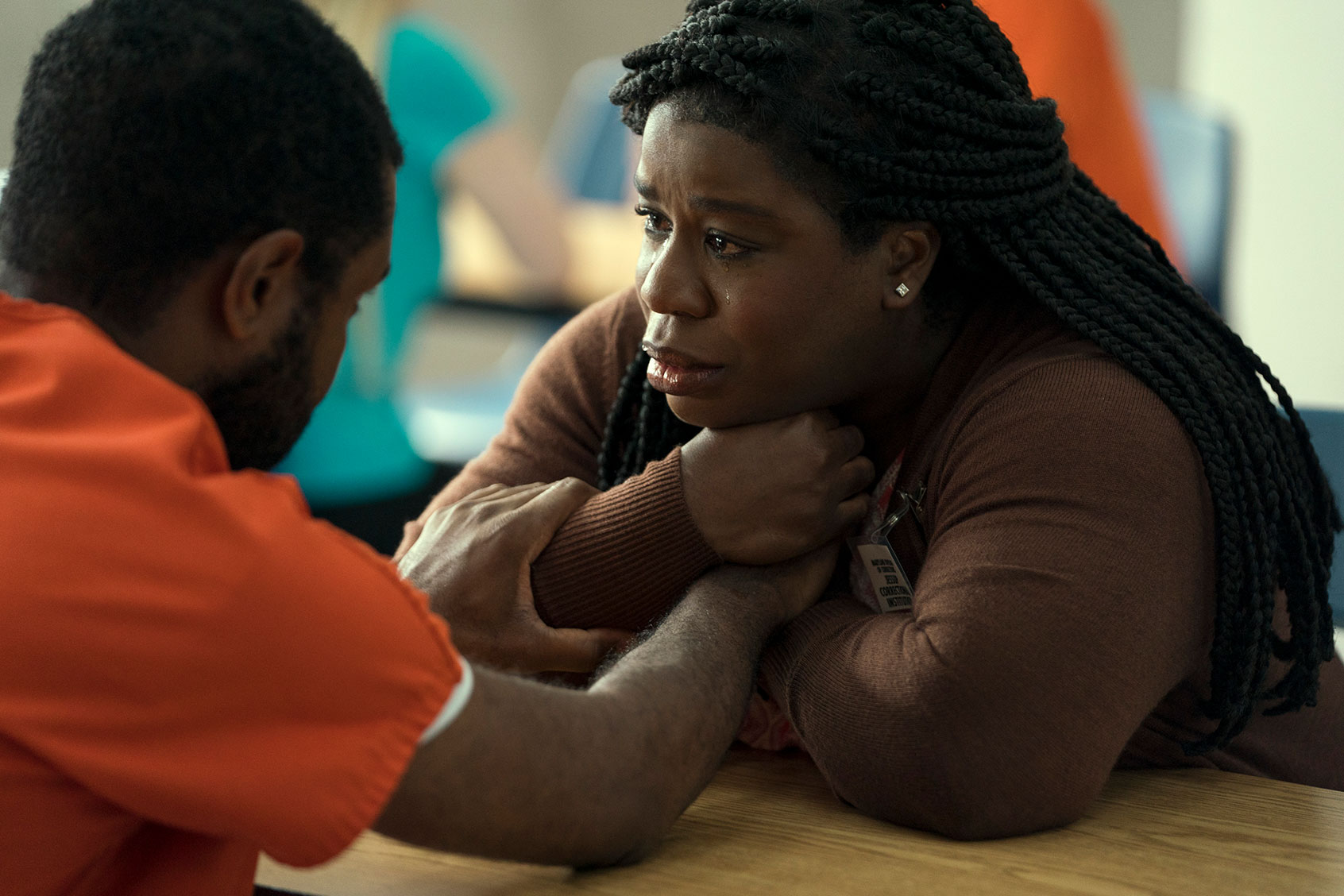Netflix’s “Painkiller” loudly addresses the extremely huge elephant in the room. The opioid epidemic is the white people’s version of the crack epidemic, but worse – because it’s legal.
The limited series “Painkiller” is a dramatized, scripted take on the Sackler family‘s role in the rise of the opioid epidemic and the collection of people who benefited. Written and directed by Pete Berg, “Painkiller” follows a colorful cast of characters whose ambition, greed, curiosity and pain actively crowned Purdue Pharma’s OxyContin.
Edie Flowers (Uzo Aduba), a fictional federal investigator, guides us through the world headed by Richard Sackler (Matthew Broderick). It is she who discovers the rise of the drug, connects with the doctors, both good and bad, warns her colleagues about the drug and takes the pharmaceutical company head-on. Edie also has a run-in with two wildly ambitious pharmaceutical reps, Shannon Schaeffer (West Duchovny) and Britt Hufford (Dina Shihabi).
Shannon and Britt, known as the OxyContin Kittens, are charged with the task of persuading doctors to buy and subscribe to more and more oxycontin. They do this by dressing sexy, flirting and mastering countless talking points that fraudulently promote the drug’s supposed safety and effectiveness. Edie sees right through this and identifies them as what they really are – drug dealers.
We get a better understanding of the deeper meaning behind Edie’s mission when we meet her brother Shawn Flowers (Jamal Grant). Shawn is incarcerated. During a prison visit in the third episode “Blizzard of the Century,” he and Edie talk about his past as a crack dealer. Shawn uses immaturity and the need to make money as an excuse, but Edie calls them out for selling their mom drugs that turned her into “a vegetable.”
As Edie reflects on the conversation, the show breaks into a brilliant montage displaying authentic archival images of the crack era. We see former DC mayor Marion Barry, who was caught in a crack bust denouncing the drug, along with politicians like George Bush – who many feel handled the rise of crack poorly – people smoking crack in the streets, Black people being harassed, police officers running down users and public protest against the drug.
Edie’s unique perspective not only forces viewers to see her brother in the same light as the Kittens but also to understand that the two young women are far worse. We only see Shawn Flowers in an orange jail suit. He represents the policing of Black people caught up in the drug trade.
There’s something extra evil about tricking people into taking drugs that they don’t need.
Shannon and Britt bounce around from party to party with their designer handbags, bragging about their colossal commission checks. The two women also lie to doctors as if it’s a sport. Shawn’s definition of accountability doesn’t match his sister’s; however, the system held him accountable because he’s in jail. Shawn was also a child when he peddled the drug, not an adult, who was touted as being a respectable professional like Shannon and Britt.
People who come to buy crack don’t need a prescription from their doctor; the dealer isn’t telling them that it’s the safest drug on the market; as a matter of fact, there’s no persuasion at all. There’s something extra evil about tricking people into taking drugs that they don’t need. People addicted to crack have been one of the biggest deterrents of the drug; however, opioid users can often blend in with everyone else, which helps people like the Kittens act like it’s not synthetic heroin. It is, and they sell it and will not see a jail cell because of their race, status and society’s inability to tell the truth.
“Painkiller” teaches us that drug users and dealers come from all different races, tax brackets, ethnic groups and genders, even though the system always finds a way to police Black people and poor people in general.
It’s time we transfer that same energy to the real criminals.

